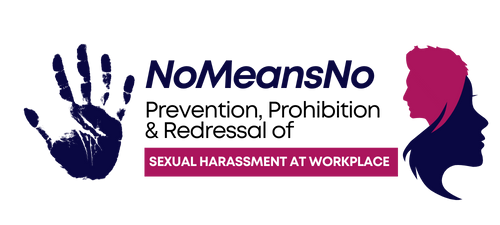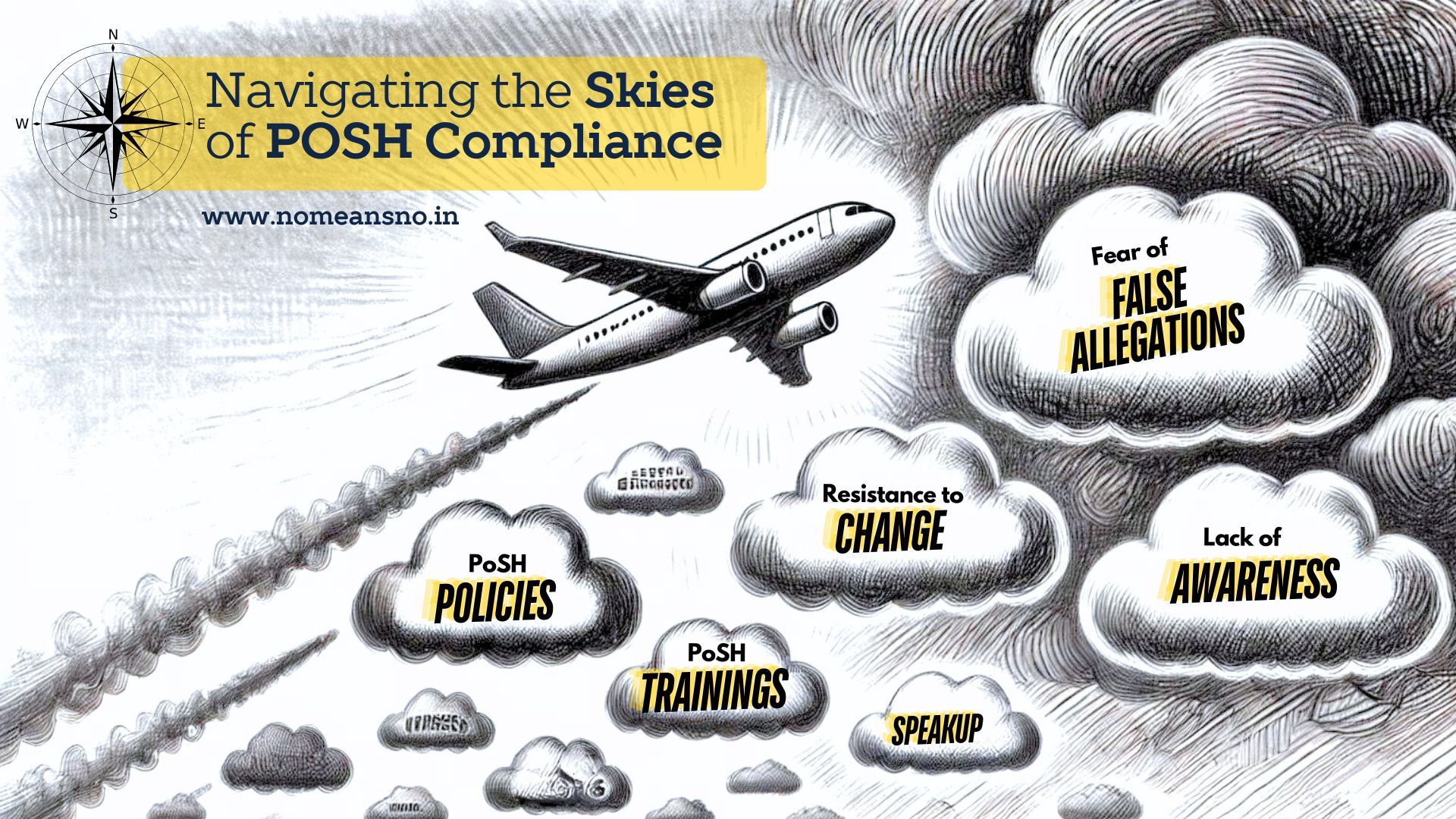As I reflect on my journey with the POSH (Prevention of Sexual Harassment) Act, I find myself drawing an intriguing parallel with another passion of mine—aviation. Both fields, though seemingly disparate, share a commonality in their requirement for precision, vigilance, and an unwavering commitment to safety. While the POSH Act was legislated in 2013, it took quite some time to gather momentum, much like an aircraft needing a long runway to achieve liftoff. But now, as we cruise at an altitude of 2024, the landscape of workplace safety and respect looks more promising than ever.
In the early days, when the POSH Act was still taxiing down the runway, there were significant challenges. Organizations were grappling with questions, fears, and skepticism. I recall conversations with HR leaders from renowned brands who voiced concerns about the Act being biased or worried about the potential for false allegations. Some even went as far as to suggest curbing the hiring of female employees to minimize perceived risks—a reaction akin to pilots avoiding certain airspaces due to turbulence. The turbulence here was the uncertainty and lack of awareness, which threatened to destabilize the very objective of the Act.
However, much like an aircraft that ascends through the clouds to reach a stable cruising altitude, the POSH Act, too, found its equilibrium post-2021, particularly in the wake of the pandemic. As we fast forward to 2024, there is a marked increase in the acceptance of POSH guidelines. Organizations have started embedding POSH training sessions into their annual calendars, and a surge in reporting of cases is a testament to the growing awareness and trust in the system.
In my last article, I shared some eye-opening statistics: a 200% increase in reporting from 2022 to 2024 across 74 organizations I represent as an external member. This rise, from 48 cases in 2022 to 110 by August 2024, underscores the positive correlation between awareness and reporting. The types of complaints reported—52% quid pro quo, 27% verbal or written sexual comments, 11% physical touch, and 10% encompassing other issues such as stalking and cyber harassment—highlight the diverse challenges that employees face. But more importantly, it demonstrates that organizations with regular POSH training sessions are those where employees feel empowered to speak up.
Now, let’s talk about malicious complaints—a term that often evokes anxiety among managers and organizations. Much like a rare but possible bird strike during a flight, malicious complaints do occur, but they are far from common. In my experience, which spans over 200 cases, less than 3% have turned out to be malicious. And just as a pilot wouldn’t blame the bird for flying into its path, organizations must understand the underlying reasons behind these complaints. Often, they stem from poor performance records or personal relationships gone sour. To mitigate these risks, I always advise organizations to maintain meticulous performance management records, much like a pilot’s flight log that documents every detail of the journey. Deviations, issues, and escalations must be recorded in writing to ensure that the organization has a clear flight path, safeguarding against potential pitfalls.
For those concerned about personal relationships in the workplace, particularly those that involve power dynamics, the POSH Act offers a built-in anti-collision system, much like the ACAS in aircraft. The Act mandates that any malicious complaint must be penalized with the same severity as an actual case of harassment. This provision is not only fair but essential in maintaining the integrity of the system. It ensures that the skies remain clear for everyone, allowing us to focus on the journey ahead, confident that our safety nets are firmly in place.
Yet, as we soar to higher altitudes, it’s crucial to remember that the journey of POSH compliance is far from over. Much like in aviation, where constant vigilance is necessary to navigate unexpected turbulence, organizations must remain committed to the ongoing process of awareness and education. The narrative that “we’ve never had a case of sexual harassment” should not be a badge of honor, but rather a call to action. The absence of reported cases could very well indicate an environment where employees feel too intimidated to speak up or lack the knowledge of their rights under the POSH Act. This silence, much like an unreported fault in an aircraft, can have catastrophic consequences if not addressed.
The real success of POSH lies not in the lack of complaints, but in the assurance that every employee feels empowered and safe enough to report any incident of harassment. The spike in reporting is not a sign of failure; it’s a sign of progress, a testament to the fact that more employees are aware of their rights and trust the system to protect them. It’s an indicator that the once shaky flight of POSH compliance is now cruising steadily at a higher altitude.
As we look to the future, the journey of POSH will require continuous navigation through the ever-changing skies of workplace dynamics. Just as pilots rely on their instruments and training to guide them through challenging conditions, organizations must lean on robust POSH policies, regular training, and a culture of transparency to ensure they are on the right path. It’s a journey that demands attention, adaptability, and above all, a commitment to creating a work environment where everyone feels safe and respected.
So, as we settle into this journey, let’s embrace the challenges that come with it. The turbulence may seem daunting at times, but with the right tools, awareness, and commitment, we can ensure a smooth flight. And remember, just like in aviation, the goal is not just to take off but to reach our destination safely—together. The POSH Act is our flight plan, guiding us toward a workplace where respect, safety, and equality are the norm. Let’s continue to climb, knowing that we have the tools and the vision to navigate whatever lies ahead.

Demystifying the Supreme Court’s POSH Act 2013 Directives
The Supreme Court of India has recently issued crucial directives concerning the Prevention of Sexual Harassment (POSH) Act 2013, providing directions for organizations and professionals alike. To help you unlock the full potential of these directives, we’ve created an easily understandable and accessible document that breaks down complex legal jargon into clear, actionable steps.






